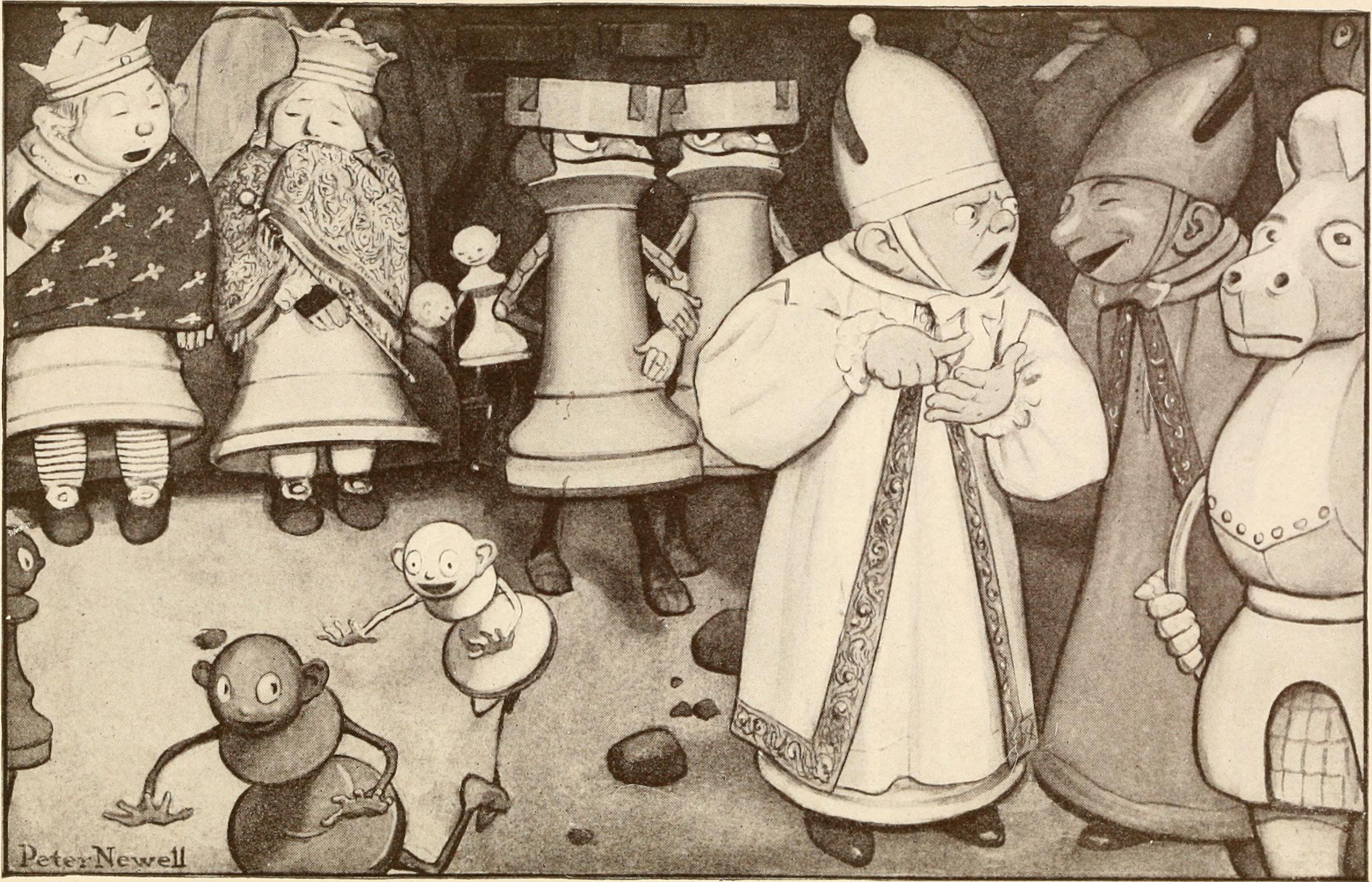Education
Through the Looking Glass at Concordia University
The last elective I needed to receive my BA at Concordia University in Montreal, that I first realized something was very wrong.

It was in a class called Representations of Minorities in Documentary Film, the last elective I needed to receive my BA at Concordia University in Montreal, that I first realized something was very wrong. The class had just watched Sound and Fury, a 2000 Oscar-nominated documentary about deaf culture. The film follows a 6-year-old deaf girl named Heather and her family (several members of whom also are deaf) as they go back and forth on the issue of cochlear implants, a then-new technology that allows some deaf people to hear.
Heather wants cochlear implants so she can talk to people and hear lions. Her mother, too, opts for the implants. But when she discovers the implant will not be as effective for her, she changes her mind, and, without consulting her daughter, decrees that neither of them will be undergoing the procedure.
After the film ended, our professor asked students for their thoughts. When called on, I said that parents should try to make their children’s lives easier. If I remember my words correctly, I added: “They shouldn’t hold their children back from something that will help them grow.”
“You just feel that way because you’re white, cisgendered, abled, and privileged,” came the snarl from somewhere below. I looked down a few aisles to the front of the dark screening room. I saw the back of a mostly shaved head, with a lock of hair tied on top. I had never seen the back of this head before. And I never saw the front of it either, because the responder didn’t bother to look at me.
You don’t know me, I thought. What gives you the right to comment on who I am? My inner monologue started racing in my privileged Cape Breton accent. Ya, I’m right some privileged, b’y. I was abandoned by my mother, y’arse! I never knew my father. I grew up under a staircase, like Harry Potter. My hand shot up so I could respond. The professor ignored it. I kept it up and locked eyes with him, agitated. He looked away. The last few minutes of the class rolled on, with others talking about things I can’t even remember. The attack on my identity just hung there over the space, unchallenged, floating, settling into the upholstery of the chairs. Then the class was dismissed.

I walked out of the screening room feeling kind of shell-shocked. What was I to take from this? What were the other students to take from this? That the attack on my character warranted no rebuttal? That my race, my gender, and my sexual identity had all disqualified me from participating? The lesson seemed clear. My status as a mother of two young girls—unimportant. My opinions—unwanted. I learned the lesson so well that I did not again participate in that class for the rest of the semester.
My experience in that undergraduate film class was just a taste, an appetizer if you will, for the full-fledged graduate feast I was to consume at Concordia once my undergrad was finished.
Students at just about any other university can recite similar stories. Universities are in a state of crisis, but this crisis did not emerge overnight. It required an hospitable environment to take root. Some journalists and professors have dismissed the phenomenon as a form of moral panic, invented by right-wing provocateurs. They cite studies and statistics to reassure us that The Kids Are Alright. Well, that kid in the front row was not alright. And I am not a right-wing provocateur. My politics are progressive. Nor am I a professor or a journalist, nor have I conducted long-range longitudinal studies that ask students to self-report on their beliefs about free speech on campus. All I have is my own experience and the experiences of those fellow students with whom I have discussed the matter, and I can assure the reader that the crisis is real.
During a professional development seminar, my program director appeared before our class and proudly announced that he had abandoned the entire field of philosophy, once his full-time calling. It was all “racist old white men,” he proclaimed. The class laughed. It was a laugh of recognition; they had heard this jazz riff before. In my department, it was normal and expected to mock and dismiss all white male thinkers as inveterate racists and misogynists. It did not matter how long ago they had lived, or how enlightened they had been compared to their contemporaries. Their opinions, their ideas, their entire contributions to world knowledge—all null and void. Aristotle? Gone. Kant? Gone. Hume? Gone. It was like a book-burning.
My program director was only playing to the crowd here, I realized, and the students loved it. It affirmed their beliefs. Plato and Hegel might as well have been Weinstein and Spacey—gone.
Men are not the only ones, mind you, who found their names, and their ideas, on the chopping block in that department. It happens to women, too—especially if they are white and hold the “wrong” opinions. To mention the name of the renowned author and feminist Margaret Atwood in a Concordia Media Studies class is to invite outrage. Atwood had picked the wrong side in 2015, when she insisted on due process for fellow author Steven Galloway after he was widely accused (falsely, it turns out) of sexual assault at the University of British Columbia.
Atwood is a bad feminist, I was sternly told in one session. She is bad for women. The discussion was over. The author of The Handmaid’s Tale—gone.
During another seminar of this type, aimed at helping us plan our careers, we were presented with the trajectories of three professors who taught in our department. The last of the trio began by describing her immigration to the Toronto exurb of Brampton as a child. Her first complaint was that all her classmates were white. She did not elaborate. She then suggested that white university professors are not capable of teaching sociology courses on the subject of race—just as I had been deemed incapable of having an opinion on deaf children.
Then, to howls of laughter from her student audience, she stood up, swung her arm out, and accused the entire Department of Sociology at McMasters in Ontario, past and present, of being “white racists.” All of them. For all time. The Sociology Department at McMasters—gone. The students loved it. They laughed and nodded.
Often, these moments got really strange. One afternoon, we were tasked with sitting in small groups to discuss a series of articles about the internet, one of which was called Taming the Golem: Challenges of Ethical Algorithmic Decision Making. As soon as we pushed our desks together, one of the group members instantly asserted that the article was “disgusting.” We waited for elaboration. There was none. She treated the assertion as self-evident.
The article contained many offensive words, she finally explained after much prodding. “Like…what?” I asked, genuinely confused.
“Cleansing,” she said. As in, “cleansing algorithms.”
I thought she was joking. She wasn’t. “Data cleansing” is a well-established practice in statistical analysis whereby redundant or inaccurate data is corrected. And in this case, the article, published in 2017 in the North Carolina Journal of Law and Technology, was authored by two academics who were concerned with the problem of bias being injected into automated decision-making algorithms, such as the type used to select the kind of content we see on Facebook. Algorithmic cleansing, in other words, has nothing whatever to do with ethnic genocide, the basis for the student’s complaint.
Two other members of the group jumped in on cue, though, nodding vigorously in agreement. They cringed at the word “cleansing.” Their shoulders tightened. They shook their heads. I tried to point out the article’s arguments, asking them if they disagreed with any of the actual content. They would not engage. “But don’t you agree with its recommendations?” I asked. They made faces. They acted as if my line of questioning was inherently problematic. To give this article’s authors a hearing, to grapple in the slightest with the ideas therein, was repugnant to them. It would give the authors a platform, give them legitimacy, and make us all complicit in their moral decrepitude, their language crime. I gave up. What could I do? The article remained undiscussed.
We were once assigned an article by Penn State professor Eric Hayot, called Academic Writing, I Love You. Really, I Do. It contained several short snippets of writing advice from famous people, such as this one from Kurt Vonnegut:
Do not use semicolons.
They are transvestite hermaphrodites representing absolutely nothing.
All they do is show you’ve been to college.
A female student immediately spoke up. She berated the professor, in front of the class. Vonnegut’s joke was so offensive, she said, that she could not understand how such an article had been assigned. It was unacceptable, the whole article. The professor, it was clear, had been unprepared for this line of attack. He shouldn’t have been. Know thy cohort. Amazingly, this was the same program director who, just months previously, had dismissed all of philosophy for its whiteness and maleness, and here he was falling victim to the very climate of repudiation he had helped to create. Hoisted by his own petard.
In his defense, he did try to open this question up for discussion, but the students weren’t having it. “We can talk about this, right?” the director asked, nervous, a bit shaky as if he were about to be shot. He was sweating. The student had him.

“You shouldn’t have assigned this,” the student condescended to inform the program director. The rest of the class sat in dumb silence. I was gobsmacked. And I saw it in the professor’s eyes right away—he would never be assigning this article again. Vonnegut, one of the greatest modern critics of our inhumanity—gone. Hayot—gone. The dignity and authority of the program director—gone. So it goes.
When it came time for me to propose a subject for my own graduate research at Concordia, I felt like Alice finally arriving at the Queen of Hearts’ garden. My research, funded by a Canadian federal agency called the Social Sciences and Humanities Research Council, focused on a Montreal-based satirical website called The True North Times, which set out to humiliate nine candidates running for Parliament in Canada’s 2015 federal election. The site had scraped candidates’ social media histories and publicized problematic comments, jokes, and opinions (often wildly out of context). The central question of my research was whether or not this had been the political equivalent of a witch hunt.
Following my presentation to a committee of peers and professors, the floor was opened to discussion. Without missing a beat, a fellow student demanded: “How do you justify using the term ‘witch hunt’?” I was caught off-guard. Justify? Lord tunderin’ Jaysus! What did she mean justify? This was a completely common term, rooted in a well-known period of history, and used often in political theory and news broadcasts in precisely the way I was using it. But apparently, because it was gendered language, it was deemed inappropriate.
My academic supervisor was looking at me as if the answer to this question was important. Those are the right words, I thought. No other words communicated precisely the meaning I intended. My choice of that term had not been cosmetic or arbitrary; political witch hunts were my central theoretical framework, undergirding the entirety of my research plan. Would I have to do a cleansing of my witch hunt?
My words were being taken away from me. My supervisor suggested I use an alternative term. No doubt, he was trying to be helpful. But it didn’t matter. At that moment, the rest of my research didn’t feel like it mattered. The point had been made: witch hunt, my essential theory, was an offensive term, not to be uttered. I had to be stopped. They could not get past it. All persons over a mile high must leave the court.
* * *
What I am providing here are small glimpses into what my existence at Concordia was like. My first, grueling year of graduate school was not marked by a solitary dramatic event. It was a sequence, a pattern, what I eventually realized was an epidemic. In almost every class, I found myself brushing up against what I had come to think of as the moral gatekeepers of the academy. By acting, or failing to act, by sustaining an arena where students—young, unformed, knowing not what they do—were encouraged to run wild and roughshod over all standards of fairness, openness, and intellectual inquiry, the professors had allowed the institution to transform into something of a madhouse. Select identities, authors, voices, words, and thoughts were permitted at the table; the rest were cast out or barred, without question, as though everything had already been decided. Any pursuit of truth, or dialectic of ideas, was cut off at the knees before it even got started, as the participants expended their energies policing language and asserting their moral virtue. It didn’t even matter if the students making the complaints were in the minority—all it took was one. Instead of a widening of horizons at university, I experienced there a strange sort of thinning, a constriction of the known world and all of reality into a single, narrow, idiosyncratic and firmly imposed set of perceptions and thoughts, an orthodoxy, a faith.
The academy, it seems to me now, has reverted in some ways to its old role as a religious institute, as in the days before Newton, a place of enforced consensus and theological purity. Percy Shelley was famously expelled from Oxford for atheism, for daring to question the orthodoxy of the University, and I see no evidence that he would fare much better today.
For readers, Alice’s journey in Wonderland is amusing. But to be Alice is something altogether different. The experience is hard to pin down with words. With few exceptions, no one on campus is officially censored. But the culture itself exerts power. One feels constantly judged. One is always on-edge. To perceive nuance, to be skeptical, to ask questions, gets one quickly accused of moral deficiency. The students are zealous, the professors often unprepared, fearful, or complicit.

And make no mistake—to be told unendingly that the whiteness of one’s skin is disqualifying, one’s morals questionable, one’s words offensive, one’s opinions invalid, has a significant cumulative psychological effect. It causes anxiety. It caused me serious depression. I agree with the goals of the academic left: equity, diversity, the inclusion of new voices, and an open canon. It’s the methods of the left that I came to revile.
Now that I have completed the first year of my Master’s degree, I have had time to play these and other related events over in my mind. Was there anything I could have done differently?
One problem I faced was that I was older than most of my classmates. Like at least one other mature student in my program, I was made to feel that my concerns were simply generational. When I told the Chair how I was feeling and what I was witnessing, he was kind and sympathetic. But by the time the conversation was over, I would feel worse, as if it were something I just had to get used to. Sharing my stories with students outside of my program helped. Discovering that these problems exist in other fields of study, too, and on other campuses, showed me that my viewpoint is widespread, even if articulating it appears to be taboo.
What ultimately got me through the year was my realization that there is another world outside of those classrooms and offices, a real world in which we have free rein to think, to joke, to play with ideas, and to work things out, without feeling we have hands on our throats. If things are to get better on campus, students and professors alike need to remember that nobody is perfect. We are all human beings, even Kurt Vonnegut. And the only way for us imperfect beings to arrive at greater truth is to allow one another to communicate our thoughts in good faith, using the language we have available to us. This is not an attempt to turn back the clock. This is not an attempt to remove anyone’s hard-earned rights. This is not a secret plot to invite neo-Nazis or white supremacists to campuses to poison the minds of the young.
This is just a call for sanity. I am a left-leaning progressive. I am an ally to progressive causes. But I can certainly tell you this: one does not sway hearts and souls through the policing of language, the policing of thoughts, the silencing of voices, and the dismissal of viewpoints. That way lies madness. And unlike Alice, we do not have the luxury of waking up from this madness on the riverbank, brushing ourselves off and going in for tea. We have to stay here and make this work. If we care at all about improving society, then we need to take a good, hard look at how university classrooms are currently functioning, and think deeply about how they got this way.






